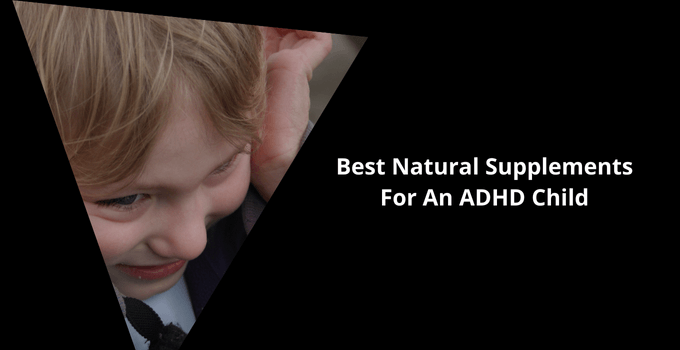In the search to support children with ADHD, many parents are exploring natural supplements as potential aid. Incorporating omega-3 fatty acids, zinc, magnesium, iron, and vitamin D into their diet can alleviate symptoms like inattention, hyperactivity, and impulsivity, supporting overall brain health and cognitive function. Omega-3 fatty acids found in fish oil benefit brain health and cognitive function. Zinc, iron, and magnesium deficiencies can be addressed through supplementation. Vitamin D levels are often lower in children with ADHD, suggesting a potential benefit from supplementation. By exploring these natural supplements, you can find targeted solutions to help manage ADHD symptoms effectively. Discover more specific recommendations tailored to individual needs to enhance your child’s well-being.
What is ADHD?
Attention-Deficit/Hyperactivity Disorder (ADHD) is a neurodevelopmental disorder characterized by persistent patterns of inattention, hyperactivity, and impulsivity that significantly impair daily functioning.
Approximately 9.4% of children in the United States have Attention Deficit Hyperactivity Disorder (ADHD), a neurodevelopmental disorder characterized by symptoms of inattention, hyperactivity, and impulsivity.
ADHD affects brain chemistry and is often associated with genetic predisposition and neurodevelopment issues. It impacts childhood development, particularly attention and impulse control.
ADHD includes three main types: inattentive, hyperactive-impulsive, and combined.
Children with ADHD may have difficulty paying attention, following instructions, and staying organized.
They may also exhibit hyperactive behaviors such as fidgeting, interrupting others, and having trouble waiting for their turn.
Diagnosing ADHD involves a thorough evaluation of a child’s behavior and must meet specific criteria outlined in the DSM-5.
Understanding ADHD is vital for managing symptoms and developing effective treatment strategies.
Who Is An ADHD Child?
An ADHD child is defined as a young individual diagnosed with Attention-Deficit/Hyperactivity Disorder, a neurodevelopmental condition characterized by persistent inattention, hyperactivity, and impulsivity. Affecting approximately 5% of children, ADHD disrupts daily functioning and social interactions, necessitating early diagnosis and tailored interventions for effective management.
Children with ADHD often experience challenges with attention, impulsivity, and hyperactivity, which supplements like omega-3 fatty acids, zinc, iron, and magnesium can help alleviate.
For instance, omega-3 fatty acids found in fish oil have been shown to support brain health and cognitive function, with high doses being particularly effective for focus issues.
Why Do Children With ADHD Need Natural Supplements?
Children with Attention Deficit Hyperactivity Disorder (ADHD) often face unique challenges that can impact their daily lives, from struggling to focus in school to managing impulses and regulating emotions.
These challenges can be influenced by various factors, including nutritional deficiencies and gut health issues, which highlight the importance of holistic approaches in treating ADHD.
Brain function optimization is vital for managing ADHD symptoms, and addressing nutritional deficiencies such as low levels of zinc, iron, and magnesium can be beneficial.
The gut connection plays a significant role in overall health, and biochemical individuality means that each child may respond differently to various supplements.
Consequently, incorporating natural supplements tailored to individual needs can help alleviate ADHD symptoms, making it easier for children to manage their daily challenges.
What Are The Best Natural Supplements For An ADHD Child
The best natural supplements for an ADHD child include supplement such as ADHD Vitamin Support Formula and ADHD Mineral Support Formula, which provide essential vitamins and minerals like vitamin D, iron, zinc, and magnesium, known to help alleviate ADHD symptoms.
Additionally, Spectrum Support Minerals and Spectrum Support II SET, as well as Active Folate and Methyl B12, can offer targeted nutritional support to address specific deficiencies often seen in children with ADHD.
1. ADHD Vitamin Support Formula
The ADHD Vitamin Support Formula is a thorough liquid multivitamin designed to provide moderate-level nutritional support for both children and adults with ADHD.
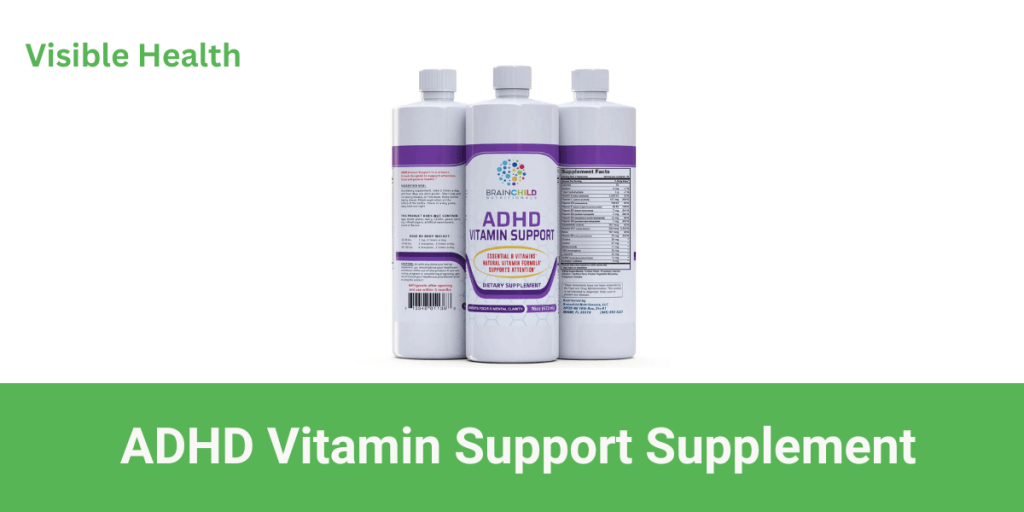
This formula is specifically developed to enhance nutrient bioavailability with an ultra-colloidal suspension, ensuring better absorption and utilization in the body.
With a broad nutrient profile of 44 vitamins, accessory nutrients, and herbs, it supports metabolic function, digestion, immune function, and neurological health.
The formula includes a less-active form of vitamin B6, suitable for sensitive individuals, leveraging vitamin synergy to promote overall brain chemistry balance.
For dosage efficacy, it’s recommended to start with a low dose and gradually increase to the full dose of 2 teaspoons, twice a day with meals, mixed with water or another beverage.
This approach helps in tailoring the supplement to individual needs and maximizing its benefits.
2. ADHD Mineral Support Formula
ADHD Multi minerals formula containing zinc and magnesium designed for neurological, metabolic, and digestive support. This highly-absorbed mineral formula is ideal for sensitive individuals and comes in an ultra-colloidal suspension that facilitates maximum absorption.
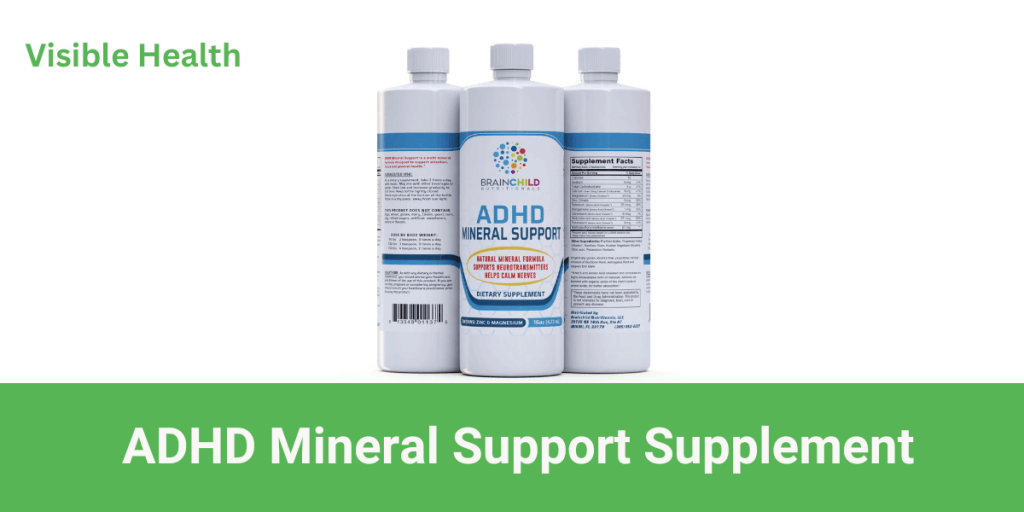
Mineral balance is vital for children with ADHD, as nutrient deficiencies can exacerbate symptoms.
The ADHD Mineral Support Formula helps maintain calm focus, supports neurological function, and promotes digestive health. Take this supplement twice a day with meals, starting with a low dose and gradually increasing to the full dose. By addressing potential mineral imbalances, you can help your child manage ADHD symptoms more effectively.
This formula is gluten, casein, and allergen-free, guaranteeing safety and efficacy.
3. Spectrum Support Minerals
Spectrum Support Minerals offer a unique advantage by being chemically bound to amino acids, which enhances cellular energy production and guarantees better mineral absorption. This gentle formula is extremely well-tolerated and absorbed compared to minerals bound to sulfate, oxide, carbonate, or chloride.
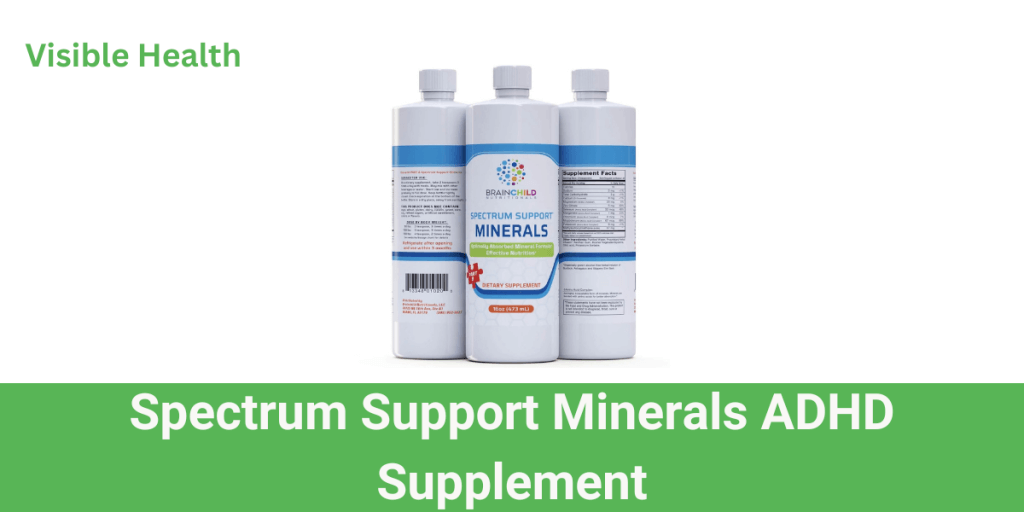
It’s also free from added flavors, sugars, artificial colors, and preservatives, making it an ideal choice.
The technologically advanced liquid suspension allows for peak utilization throughout the body. To use, mix with water or another beverage 3 times a day with meals, starting low and gradually increasing to the full dose as needed.
4. Spectrum Support II SET
Spectrum Support II is a liquid multivitamin formula designed to provide a moderate level of nutritional support for children and adults on the spectrum.
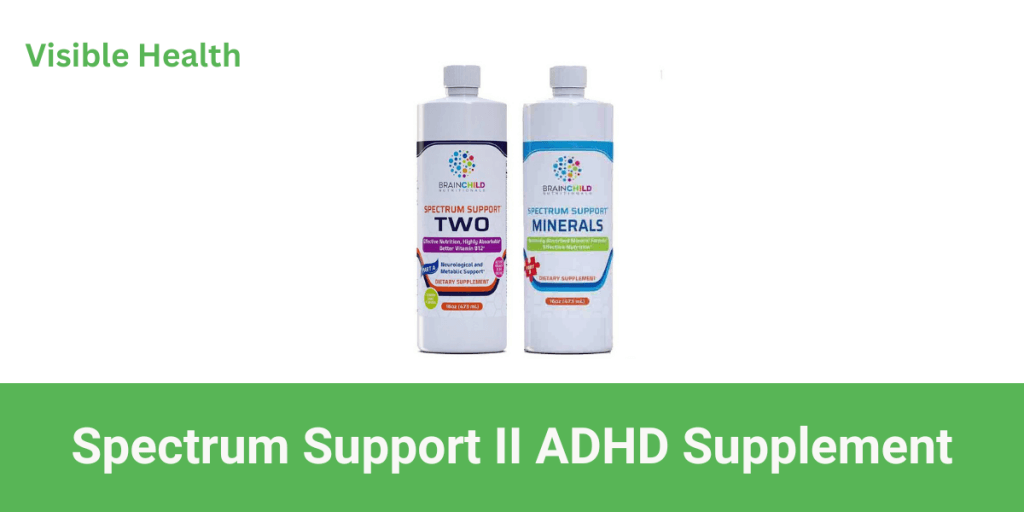
It comes in two varieties: the original P5P form, which contains the active pyridoxal-5-phosphate form of vitamin B6, and the PAK form, which contains the pyridoxine alpha-ketoglutarate form of vitamin B6.
The key difference between the two is that P5P is more readily utilized by the body, offering several times more effective vitamin B6 per milligram than PAK.
Spectrum Support II supports digestion, detoxification, immune function, and neurological health.
The recommended dose is three times a day with meals, starting low and increasing gradually to the full dose.
This supplement is tailored to support the unique nutritional needs of individuals with ADHD and those on the autism spectrum.
5. Active Folate and Methyl B12
Active Folate and Methyl B12 stand out as two of the best supplements for children with ADHD due to their essential roles in neurological function and methylation processes.
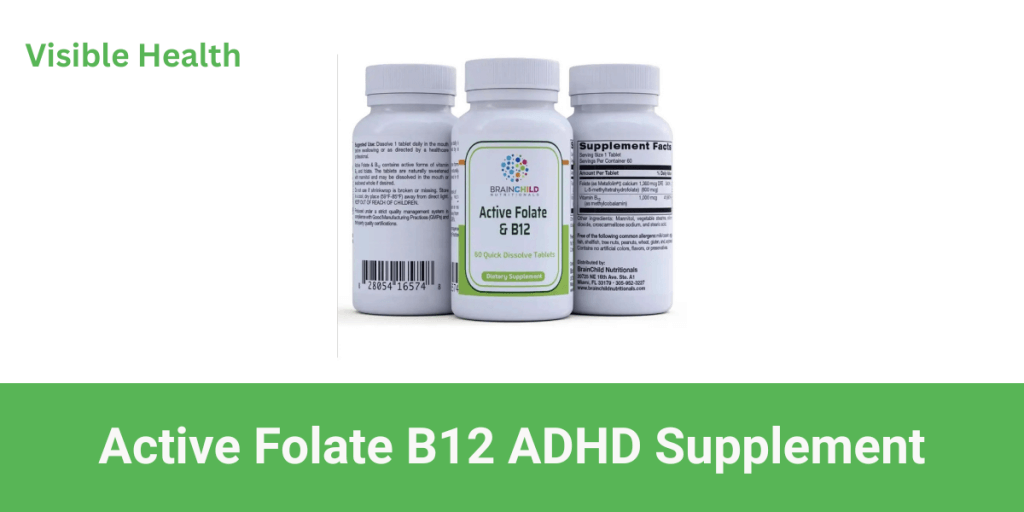
Folate benefits include its conversion to an active form through methylation, which is vital for the production of neurotransmitters like serotonin and dopamine.
The methyl role in this process is pivotal, as MTHFR mutations can hinder the conversion of folic acid into its active form, leading to a folate deficiency.
Vitamin synergy is key here, as methylcobalamin (a form of B12) and metafolin (L-5-MTHF) work together to bypass normal absorptive mechanisms, which can be impaired in many cases.
The bioavailability importance is underscored by the fact that folate and vitamin B12 are critical for DNA synthesis and homocysteine metabolism, making these supplements particularly beneficial for vegetarians and individuals with impaired gastrointestinal absorptive function.
Taking one tablet daily with food can help support these essential processes.
What Are The Top Natural Remedies For ADHD?
When considering natural remedies for ADHD, you’ll find that dietary changes can notably impact symptoms, with research suggesting that reducing sugar and processed foods while increasing omega-3 fatty acids can be beneficial.
For instance, omega-3 supplements, rich in EPA and DHA, have been shown to improve attention and reduce hyperactivity in children with ADHD, with recommended dosages ranging from 1000 to 2500 mg daily.
Additionally, other supplements like Ginkgo Biloba and Vitamin D have also been explored for their potential benefits, though more research is needed to confirm their efficacy in treating ADHD symptoms,.
How Do Dietary Changes Impact ADHD Symptoms?
Diet plays a crucial role in managing ADHD symptoms in children. Food sensitivities, gut bacteria, nutrient deficiencies, meal frequency, and digestion patterns can all impact symptom severity. Research shows that eliminating certain food additives and allergens can lead to significant improvement in ADHD symptoms for about 8% of children.
Additionally, studies have found that a diet rich in omega-3 fatty acids, fruits, vegetables, and whole grains can help alleviate symptoms. The “few-foods diet” (FFD) has also been shown to decrease ADHD symptoms in 60% of children by restricting food intake to only a few hypoallergenic foods.
Moreover, maintaining a regular meal frequency and promoting healthy digestion patterns can also contribute to managing ADHD symptoms effectively.
What Are The Benefits Of Omega-3 Supplements For ADHD?
Some parents seeking alternative ways to manage their child’s ADHD symptoms often look to natural supplements for support. One such supplement is Omega-3, which offers various benefits for brain development and attention improvement.
Omega-3 deficiency is associated with a higher probability of ADHD symptoms, and supplementing with it can help alleviate symptoms such as inattention and hyperactivity.
Fish oil benefits are well-documented, particularly in studies showing that daily doses of Omega-3 supplements can reduce commission and omission errors related to impulsiveness and inattention.
When choosing an Omega-3 supplement, ensuring supplement quality is vital to maximize benefits. Look for products rich in EPA and DHA, essential fatty acids found in fish oil, and consider the recommended dosages (500 mg/day for children under 12 and 1000-1500 mg/day for adults).
This natural resource can be an effective addition to or alternative to traditional ADHD treatments.
Can Herbal Supplements Like Ginkgo Biloba Help With ADHD?
Herbal supplements like Ginkgo biloba are among the alternatives gaining attention.
Ginkgo biloba is known for its antioxidant properties and its potential to improve brain function and cognitive performance.
Research studies have investigated its efficacy in treating ADHD, showing promising results.
For instance, a study found that Ginkgo biloba, at a daily dose of up to 240 mg, for 3-5 weeks, improved ADHD symptoms in children, including attention, hyperactivity, and impulsiveness.
In addition, studies have found that Ginkgo biloba can enhance the effectiveness of conventional ADHD treatments like methylphenidate by up to 35%.
These findings suggest that Ginkgo biloba could be a valuable complementary treatment for ADHD, particularly for those seeking alternative therapies.
How Effective Are Vitamin D Supplements For ADHD?
When it comes to managing ADHD symptoms in children, various natural remedies have been explored, including vitamin D supplements.
Research suggests that vitamin D plays a vital role in brain health and function, which may be particularly beneficial for children with ADHD. A study found that children with ADHD had markedly lower levels of vitamin D compared to non-ADHD children, highlighting the potential link between vitamin D deficiency and ADHD symptoms.
To incorporate vitamin D into your child’s routine, consider adding supplements to their morning routine, especially during periods of low sunlight exposure.
The ideal dosage for ADHD symptoms isn’t universally defined, but doses of 50,000 IU/week have shown improvements in cognitive function and behavioral problems.
Ensuring adequate vitamin D levels can be a key component in managing ADHD symptoms naturally.
Affiliate Disclosure: Some of the links in this post are affiliate links, which means I may earn a small commission if you make a purchase through those links. This comes at no extra cost to you. Thank you for your support!

